As the techology on forecourts becomes ever-more complex, and the number of products and services they offer continues to increase, ensuring that everything is operating at peak efficiency, or even working at all, is a growing challenge.
Preventative maintenance is the common-sense solution, and regular visits from engineers will keep equipment breakdowns to a minimum.
"Maintenance always saves money in the long run," says DP Fuel Tank Services (DP FTS) managing director Nigel Plumb. "But the problem is that we generally get called in by forecourts when a problem that maintenance could have avoided has already happened."
DP FTS and its strategic partners offer tank cleaning, pipework maintenance and replacement, tank lining and related civil works. How often sites should get their tanks and pipework checked depends on the volume and throughput, say Plumb, but where biofuels are involved, serious problems can develop in a very short time, so once a year is an absolute minimum. He recommends a complete tank clean about every five-to-eight years.
He says inspection visits need not take long. The time it takes depends on the number of tanks and pipes and whether tank entry is involved, so it will vary from an hour or so up to a day. Whether the site has to be closed during the inspection depends on the configuration of the site. He says: "While the health and safety of the operatives, staff and the public are always paramount, with the use of properly cordoned off areas, inspections can usually be carried out without fully closing the site."
During an inspection, samples of the fuel are taken and, initially, visually inspected for particles and other obvious problems and then put through a range of thorough tests by qualified experts. If a tank can be emptied, or is being emptied for cleaning or relining anyway, the inside of the tank can be visually inspected for potential problems and an ultrasound scanner can detect thinning of tank walls. Pipes, where accessible, are similarly inspected for integrity and potential future problems.
Plumb says: "Fuel storage issues, such as biofuel problems or potential leakage, can be easily identified and scheduled maintenance or remedial work can be planned in. This is always a much more cost-effective option than having to carry out emergency repairs.
"It is a great deal more cost-effective to clean a tank before sediment starts blocking pump filters, or to repair and line a tank before a leak occurs, especially when you include the cost of clean-up."
He says that biofuel in particular can cause a range of problems. The first and most likely is brought about by the fact that biofuels are extremely good cleaning agents. All tanks, except brand new ones, will have a build-up of sludge in the bottom and rust and other contaminants around the walls and in the pipes. Biofuels will pick up dirt and particulates and deliver them to the pumps. The other two causes are biological: bacteria and algae. Plumb explains: "Algae forms a dark green to black slime when collected by filters out of suspension, and bacteria form gelatinous clumps, which resemble jellyfish when viewed in the tank. These can be up to a foot across. Both organisms need water, food and a conducive environment in which to thrive. Biofuels provide the food and, because of their propensity to absorb water, they can also provide the hydration. Bio-diesel is more susceptible than the ethanol in petrol, as ethanol is a mild bactericide.
"All these factors can cause blockages in the pipes and filters, which can lead to slow pumps, causing queues and customers getting impatient and driving off to somewhere else. We have also had reports of pump motors burning out. Because biofuels can mask water content, they can also promote corrosion in unlined tanks."
Fuel specialist
Another fuel specialist, Adler and Allan, concurs with Plumb about the potential problems of biofuel, commenting: "Bio-diesel will require a more frequent and higher standard of maintenance than standard diesel. Microbial growth and water may exacerbate localised corrosion. It may also result in the blocking of dispenser filters and fuel lines."
It adds: "Dispenser filters and cut-off systems should be checked regularly to ensure that dispenser filters remain clean enough to retain line pressure and cut-off function. Where there is sufficient degradation of the filter it should be changed immediately." The company offers fuel testing and if microbial contamination is discovered, it can provide treatment and fuel polishing. It also provides tank-cleaning services.
Tokheim is best known as a manufacturer of forecourt equipment, but also runs a full maintenance service covering its own and third-party equipment and wider maintenance issues across the forecourt.
Sales director Adrian Beeby says: "As a manufacturer, one of Tokheim’s core beliefs is that our products are only as good as the support we deliver with them. As a nationwide service provider, we also believe our skills are well suited to supporting products manufactured by our competitors. More than anything else, this is what differentiates us from other suppliers. Tokheim has invested extensively in setting up the largest direct service network across four continents.
He adds: "Tokheim maintains and services a full range of forecourt and shop equipment both our own and an extensive range of third-party products. Some of our extended services include electrical tests and remedials, Stage Two vapour recovery tests, interceptor, gulley and drainage repairs, fabric maintenance (both inside and externally), lighting and security management, tank testing and non-entry tank re-lining, as well as shop extensions to full-site knock down and re-build."
Beeby says Tokheim has a centralised service parts system to provide efficient support for customers. He adds: "This allows for accurate and effective ordering and quicker replacement of spare parts when required. It is important to order genuine Tokheim parts when servicing our dispensers, systems and payment devices. The same applies to the third-party equipment we service for our customers. Genuine manufacturer parts are designed and built to perform optimally in the equipment on your sites and are in line with the appropriate design and legislative standards."
P&C Advisory Services is another forecourt specialist providing anything from facility management (FM) to running a full knock-down and re-build. When it comes to maintenance managing director Richard Quarmby says: "We do planned services such as interceptor cleans, electrical tests, vapour recovery tests and pipework tests and it’s all live on a system so the client doesn’t have to have files of paperwork because it’s all on the cloud. When anyone comes in for an inspection, such as a fire officer, it’s all on the back office straight from the cloud."
Impact damage
In addition to the planned maintenance there is also a call desk to respond to any problems that need fixing. If it’s a smaller job within an agreed budget, such as a faulty tap or a loose tile, engineers can be sent to deal with it as part of their weekly schedule. For more costly work, such as impact damage to a pump or canopy, the area manager will be sent a quotation. If a job can’t be covered in-house, P&C will also act as a third party obtaining three quotes from companies to complete the work. Currently the company covers more than 150 forecourts nationwide.
Global-MSI has a long track record of putting up buildings and in particular canopies on forecourts. Managing director Martin Steggles has been vocal in urging forecourt owners to maintain and monitor their canopies properly, and has warned in Forecourt Trader of the potential danger of corrosion causing older canopies to collapse. He says the message is getting through to the industry, but his company still regularly comes across canopies that are more than 40-years old.
As the number of dealer sites has grown due to the oil companies selling off forecourts, Steggles says Global-MSI has adapted the cost of its maintenance to suit the needs of dealers. "When our surveyors find a few loose sheets on a canopy we give the dealer two options. Either a price just to replace the defective sheets, or a price to replace the whole lot." He says oil companies would generally take the second option, which is most cost-effective in the long term, but a dealer may prefer to spend less by mending it and putting off the larger capital outlay.
Steggles says customers can also look forward to an even more comprehensive service from MSI-Global following the takeover by its parent company of a forecourt branding firm called Petrol Sign. He says integrating Petrol Sign’s expertise into MSI-Global will enable it to offer a complete package covering canopies and signage.
One-Stop shop
At Forecourt Maintenance Services (FMS), which describes itself as a one-stop shop for maintaining anything on forecourts above ground level, director Dave Morgan describes 2015 as "the year of the canopy".
He says following the article in Forecourt Trader last year about dangerous canopies, owners are more aware of the problem and willing to consider the need for replacement. "We have already replaced five so far this year and we would hope for another four or five by the end of the year," he says.
Another trend in the market is the move over to LED lighting. He says: "The initial cost is not cheap but you are getting your money back through energy savings within two years."
Sean Kearney, business development director at signage specialists ID Maintenance, says replacing fluorescent lighting signage with LED is the major trend in his sector. He says: "When sites come up for a re-sign or refresh we are increasingly finding they are asking to upgrade to LED."
In addition to the energy savings he says LED lighting also cuts maintenance costs because while fluorescent lighting tubes would usually be replaced every two years, LED lights can be expected to last for at least five years.
Automatic rollover car washes and jet washes should always be included in a site’s maintenance regime, says vehicle wash specialist Wilcomatic. It says they are an excellent source of revenue for forecourts, and they are also a draw to the site, attracting customers for the shop and other services but only if they are working as they should.
To help forecourt owners keep their wash machines operating at peak performance, maintain their income stream and ensure their customers keep coming back, Wilcomatic offers a range of services for its own and third party wash equipment throughout the country.
The services include full maintenance contracts, repairs, bay cleaning and a chemical top-up service.
Ray McMullan, Wilcomatic’s general manager service operations, says: "Engineer visits to customer sites are always about more than just doing the job on the ticket. They are also about promoting partnership with the forecourt staff and heading off future trouble.
"Our people are trained to look around the bays and equipment, deal with any problems they can handle on the spot and flag up other things that need attention. They also work with forecourt staff to help them understand the importance of the daily checks. We have had cases as simple as a piece of aluminium foil masking a sensor, that should have been picked up on the daily checks, which put the machines off-line."
Innovations
The company is constantly developing its maintenance offer through innovations such as the use of a dedicated team to manage repairs and maintenance of the smaller forecourt equipment such as air/water towers and vacuums, which frees up engineers to concentrate on car washes. This, says McMullan, reduces response times and improves the quality of the small equipment repairs.
Increased use of technology is also driving improvements in maintenance. All engineers now carry a computer tablet, which gives greater access to technical information, improves scheduling and reduces paperwork. Wilcomatic recommends a full maintenance visit four times a year, as many components can get damaged or wear in a busy valeting area in three months.
The company also emphasises the presentational side of its services. McMullan says: "Car owners don’t want to use a dirty car wash, with bay walls covered in algae. They like clean presentation, with clear signage and attractive pos material. It’s in our interest to ensure our customers make the most from their equipment. That way they will stay as our customers."





















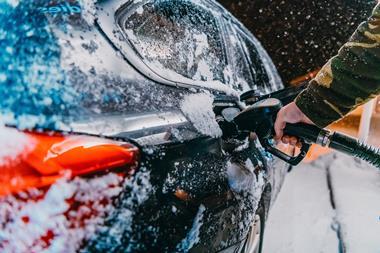

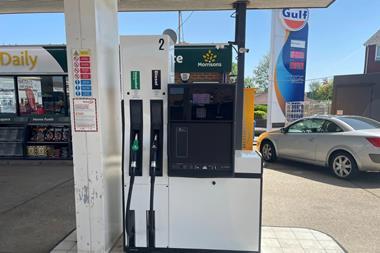
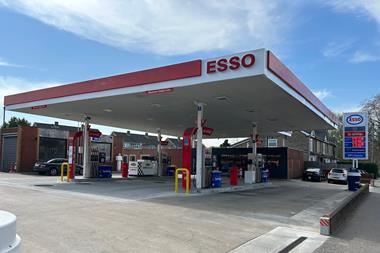
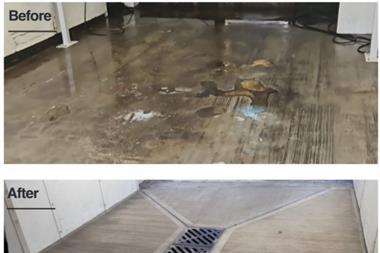
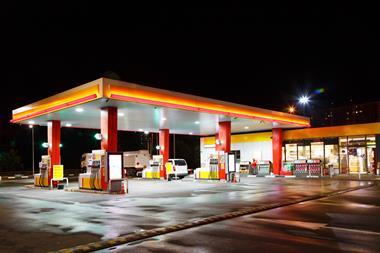
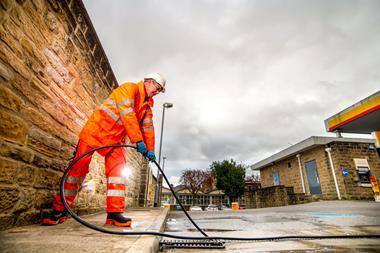
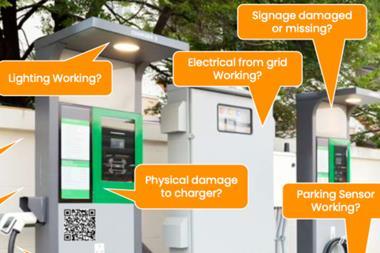
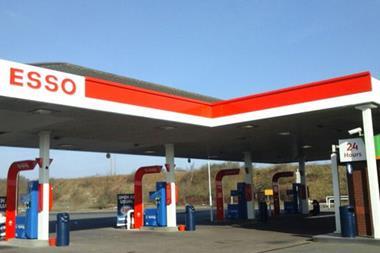
No comments yet